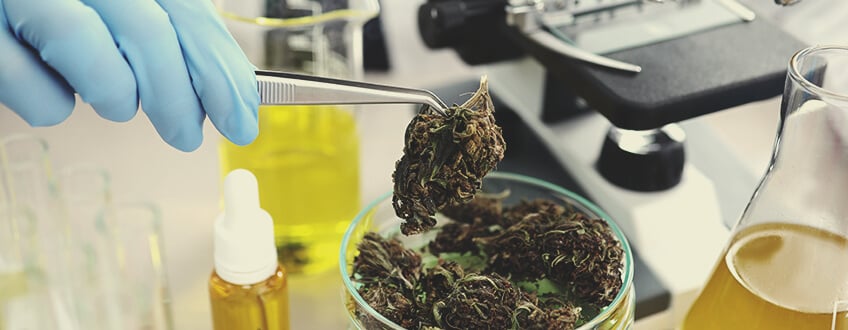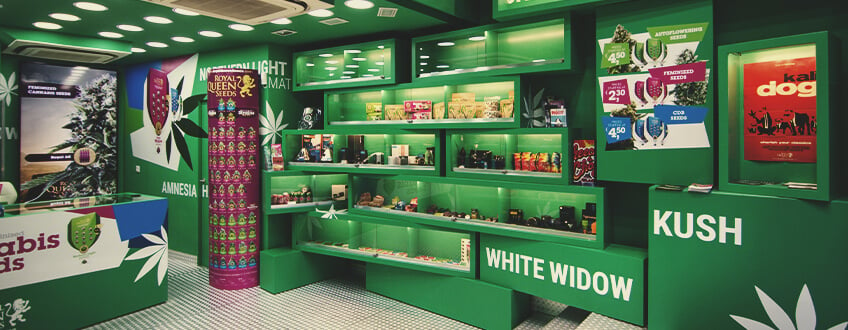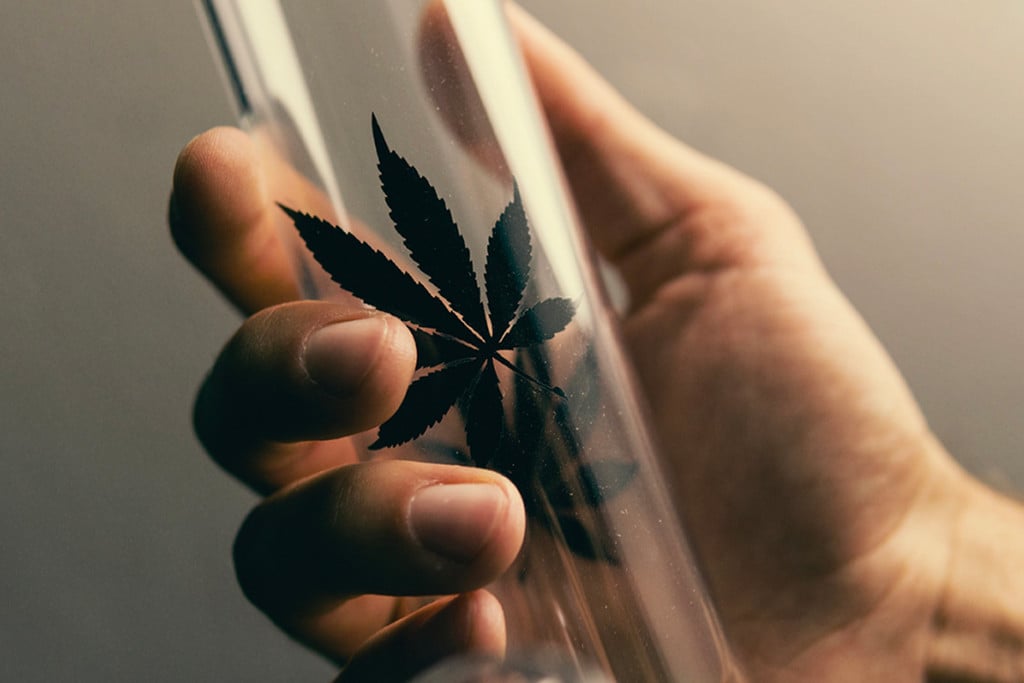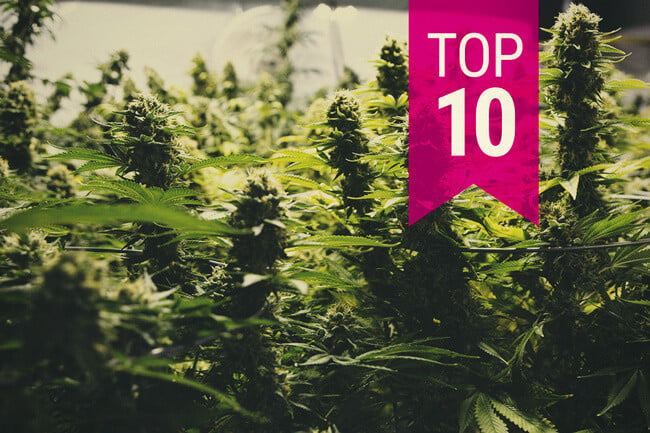.

10 Reasons Why Cannabis Should Be Legal Worldwide
The debate surrounding whether or not to legalize cannabis is a heated one. At times, both sides seem to make compelling arguments, but legalization clearly is the way forward. Keep reading to learn why.
Cannabis is, by far, the most commonly consumed illegal substance in the world. Somewhere close to 150 million people annually report regularly using cannabis.
Support for cannabis and its legalization is arguably at its highest in 100 years (or at least since prohibition started in the 1930s). Despite the growing support, however, cannabis remains illegal to some extent in the majority of the world.
Contents:
- Prohibition has damaged our understanding of cannabis
- Legalization means we can better regulate cannabis
- Legalizing cannabis benefits the economy
- Legalization is a viable response to the failed war on drugs
- Cannabis is safer than alcohol and tobacco
- Legalization would put an end to the prejudice and stigma surrounding cannabis
- Most people are in favor of legalization
- Legalizing cannabis doesn’t encourage young people to smoke it
- Prohibition simply doesn’t work — we have the proof!
- Governments should have no say in what adults put into their bodies
Legalization vs Decriminalisation: What’s the Difference?
Many people make the mistake of using the terms legalization and decriminalisation interchangeably. However, the two have completely different definitions, and it's important to understand these differences when talking about the legal state of cannabis.
| Legalization | The act of legalizing cannabis involves removing the legal restrictions surrounding the cannabis plant and its use. Different countries and governments may take different approaches to legalizing weed. Some may completely legalize the cultivation, sale, processing, and use of cannabis and its derivatives, while others might only legalize its sale for medical use, or only legalize the production and sale of cannabis flower while prohibiting the production of cannabis derivatives like extracts and edibles. |
| Decriminalisation | Decriminalising cannabis involves removing the criminal sanctions against its use, cultivation, sale, and possession. Again, different governments and countries have chosen to decriminalise cannabis to different degrees; some may only decriminalise the possession of small amounts of cannabis, the cultivation of a limited number of plants, or the consumption of cannabis in private locations, while others take more liberal approaches. |
| Legalization |
| The act of legalizing cannabis involves removing the legal restrictions surrounding the cannabis plant and its use. Different countries and governments may take different approaches to legalizing weed. Some may completely legalize the cultivation, sale, processing, and use of cannabis and its derivatives, while others might only legalize its sale for medical use, or only legalize the production and sale of cannabis flower while prohibiting the production of cannabis derivatives like extracts and edibles. |
| Decriminalisation |
| Decriminalising cannabis involves removing the criminal sanctions against its use, cultivation, sale, and possession. Again, different governments and countries have chosen to decriminalise cannabis to different degrees; some may only decriminalise the possession of small amounts of cannabis, the cultivation of a limited number of plants, or the consumption of cannabis in private locations, while others take more liberal approaches. |
Why Is Cannabis Still Illegal? What Are the Reasons for Its Prohibition?
Opinions toward this ancient plant and its use (be it recreational, medical, or somewhere in between) are changing, and a few governments have begun to reflect these changes with updates to their political policies.
-
Grandiose Claims Are Made on Both Sides
Advocates for legalization often struggle to make a compelling argument in support of their cause. Unfortunately, weed advocates can make cannabis out to be a wonder-drug that cures all diseases while promoting creativity, open-mindedness, and spiritual progression. That being said, it's important to be honest and realistic about what it can and can’t do.
-
Prejudice and Racism
For years, cannabis has been associated with counterculture; from the rebellious hippies of the 60s and 70s to the lazy stoner archetypes of 2000s cinema, weed has long been lacking endorsement from mainstream role models.
Even before the 60s, racist and xenophobic government propaganda linked cannabis with immigrants and criminals. Movies like Reefer Madness (1936), among other media, paint clear examples of this, as does the history of the word marijuana itself. Indeed, marijuana as a term has racist roots and can be traced back to derogatory political campaigns designed to breed fear and xenophobia in America.
-
The Medical Cannabis Taboo
While some research has investigated the therapeutic potential of cannabis, its compounds, and derivatives, it's surely not enough, and there’s still a ton we don’t know about the plant and how it affects us.
This lack of understanding breeds a combination of scepticism, doubt, and fear, for those in favor of medical weed are scared to make any major claims about the plant’s positive interactions with the body. In fact, while there’s evidence to suggest that cannabis is a relatively safe, non-toxic substance with fairly low addiction potential, the reality is we don’t know any of these things for certain.
-
Upholding the Status Quo
Cannabis prohibition has only existed for approximately 90 years, but that seems to have been long enough to force many of us, especially policymakers, to simply accept the current status quo, while others hold vested interests in keeping cannabis illegal.
Below we’ve developed 10 arguments in favor of cannabis legalization.

1. Prohibition Has Damaged Our Understanding of Cannabis
Research some of the oldest medical texts in the world, and you’ll find countless mentions of cannabis.
Looking back on these old texts helps us understand how widely used cannabis was throughout human history, and highlights some of the ways our ancestors used and understood this ancient plant. It also begs the question of what our knowledge of cannabis might look like today had we been able to research it freely over the last 100 years.
One of the most detrimental effects of prohibition is the legal implications of studying cannabis, its compounds, and its complex mechanisms of action. A lack of access has directly contributed to our current lack of understanding of its interactions with the human body. Overcoming this hurdle would allow us to invest in comprehensive studies to unveil both the potential benefits and risks of the plant for our society.
2. Legalization Means We Can Better Regulate Cannabis
As mentioned earlier, there’s some pretty solid evidence to suggest that cannabis is a relatively safe substance. But the truth is, with so much we still don’t know about cannabis, its compounds, and the way they act on the body, it's impossible to say for certain just how safe it really is.
The fact that most of the cannabis currently being sold and used around the world is grown and handled illegally doesn’t exactly make this task any easier. Legalization, however, offers the perfect solution to the existing concerns, doubts, and questions we have about whether cannabis is safe.
Legalizing cannabis would allow us to evolve out of an elusive, untrustworthy, illegal market to one that’s transparent and open; a market that can be properly regulated and held accountable to prioritise safety, human health, and transparency. The simple truth is that people are using cannabis despite the fact that it is illegal. Legalizing and regulating cannabis would allow us to ensure that any person who chooses to use it can do so responsibly.

3. Legalizing Cannabis Benefits the Economy
Just over the last 10 years, cannabis has become one of the best-selling agricultural products in the US. Each year, the legal markets of California, Colorado, Alaska, Nevada, and other states reel in billions of dollars and create thousands of jobs, later providing revenue in taxes to the state and the community.
In 2020, a year that brought huge financial challenges for almost every economic sector in the world, the cannabis industry soared. In the US, for example, legal cannabis sales rose by 67% in 2020, and the industry’s value grew to a new all-time high of $61 billion.
Many different products have been created, not all of which are THC based, which highlights the possibilities of cannabis-derived products.
4. Legalization Is a Viable Response to the Failed War on Drugs
Evidence shows that the vast majority of people punished under prohibition aren’t criminals; they’re users. In the US, for example, an estimated 92% of cannabis arrests are for possession[1] of small amounts of weed, while 8% are for selling or manufacturing.
Statistics show that there are simply too many cannabis consumers on the planet for law enforcement to consistently enforce prohibition. Attempting to enforce the prohibition of such a widely used and accepted substance is not only unrealistic, but also wastes resources and causes unnecessary, unfair suffering.
Meanwhile, in legal cannabis markets, studies show that legalizing cannabis doesn’t have any major effect on crime rates[2], but it may be an effective way to eliminate (or seriously downsize) the black market and instead move the production and sale of cannabis above board, where it can be regulated accordingly. Legalization has also been shown to reduce cannabis-related arrests, freeing up huge amounts of resources and allowing law enforcement to focus on more important aspects of their jobs.

5. Cannabis Is Safer Than Alcohol and Tobacco
Even though it has to be approached carefully, cannabis is not so dangerous as you’ve been led to believe. Compared to alcohol or tobacco, both of which are legal and available everywhere (and have even been regulated by food and drug administrations like the US FDA), health risks of using cannabis even on a regular basis are still less concerning.
Studies show that alcohol is responsible for the death of over 85,000 people[3] every year in the Americas. Meanwhile, tobacco smoking is responsible for close to 500,000[4] annual deaths in the US alone. Cannabis used alone, on the other hand, kills no one, and experts from all over the globe coincide that cannabis isn’t toxic nor fatal[5].
That doesn't imply that education and responsible use aren't necessary, though.
6. Legalization Would Put an End to the Prejudice and Stigma Surrounding Cannabis
As we saw earlier, the prohibition of cannabis is fueled by biased assumptions and old-fashioned prejudices regarding the people who use it. And while putting an end to this prejudice (built up over the past 90+ years) is by no means going to be easy, legalization would help get the ball rolling.
We’re already seeing the negative stigma surrounding cannabis being slowly deconstructed in the handful of legal markets around the world. And as more people open up and normalise their cannabis use, it also helps build a stronger, modern, and free society not stigmatised by old clichés and prejudices.

7. Most People Are in Favor of Legalization
While people's attitudes toward cannabis obviously vary from one country to another, opinion polls show that (in many Western countries at least) a majority of voters support legalization.
Stats from the Pew Research Center, for example, show that over 90% of American voters support legalizing cannabis[6] to some degree (be it for medical or recreational use). 70% of voters in the Netherlands also support legalization, as do the majority of people in Australia, England, Spain, and many other countries. In any decent democracy, we would expect legislative changes to reflect these polls. The cannabis prohibition that still exists in most of these countries, however, suggests that democracy doesn’t apply to legalizing cannabis.
8. Legalizing Cannabis Doesn’t Encourage Young People To Smoke It
Critics often claim that legalizing cannabis will encourage young people to try it. This is concerning, as some research[7] suggests that using cannabis during childhood or adolescence can damage a young person’s developing brain.
However, the fear that more young people will consume cannabis if it is made legal is misplaced. Data from the few current legal markets in the world show that legalizing doesn’t encourage more young people to try it. In fact, in Colorado, the number of young people using cannabis has declined since legalization.

9. Prohibition Simply Doesn’t Work — We Have the Proof!
It is obvious that the War on Drugs has failed at reducing harm and diminishing the illegal drug trade. Statistics show that the stronger restrictions employed by governments as a result of the War on Drugs only push the drug trade further underground.
Prohibition simply doesn’t work. We saw it in the past with alcohol, and we’re seeing it again with cannabis.
Making a substance illegal simply doesn’t stop people from consuming it. But beyond that, prohibition doesn’t help minimise crime; instead, it wastes a ton of law enforcement resources and mainly punishes drug consumers, particularly people of color, and not necessarily the people involved in organized crime.
10. Governments Should Have No Say in What Adults Put Into Their Bodies
If we accept the evidence that cannabis is considerably safer than tobacco and alcohol (which we can buy legally in huge quantities almost anywhere), it starts to become obvious that weed prohibition isn’t just hypocritical, but also a blatant intrusion of our individual freedom of choice.
Banning and enforcing the prohibition of cannabis to such an extent that people are arrested and tried simply for possessing it is ludicrous.
Many decades of prohibition have made all of this very clear, but the last 10 years of progress shows a lot of promise for the future. Hopefully, soon, cannabis will be legal worldwide!
- 40% of U.S. drug arrests in 2018 were for marijuana offenses | Pew Research Center https://www.pewresearch.org
- The Cannabis Effect on Crime https://www.tandfonline.com
- Alcohol consumption is the sole cause of 85,000 deaths annually in the Americas, PAHO/WHO study finds - PAHO/WHO | Pan American Health Organization https://www.paho.org
- Fast Facts | Fact Sheets | Smoking & Tobacco Use | CDC https://www.cdc.gov
- Can marijuana kill you? https://www.medicalnewstoday.com
- Overwhelming support for legal recreational or medical marijuana in U.S. | Pew Research Center https://www.pewresearch.org
- News Feature: Cannabis and the adolescent brain | PNAS https://www.pnas.org




































